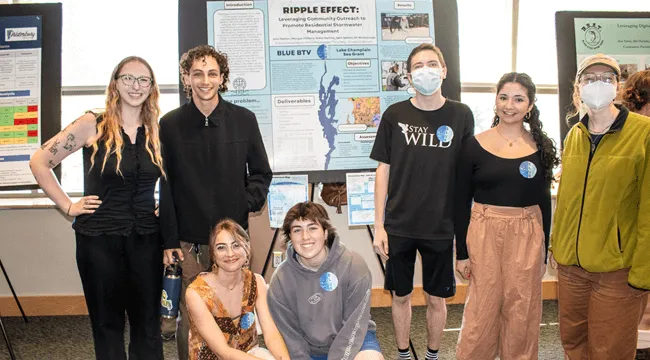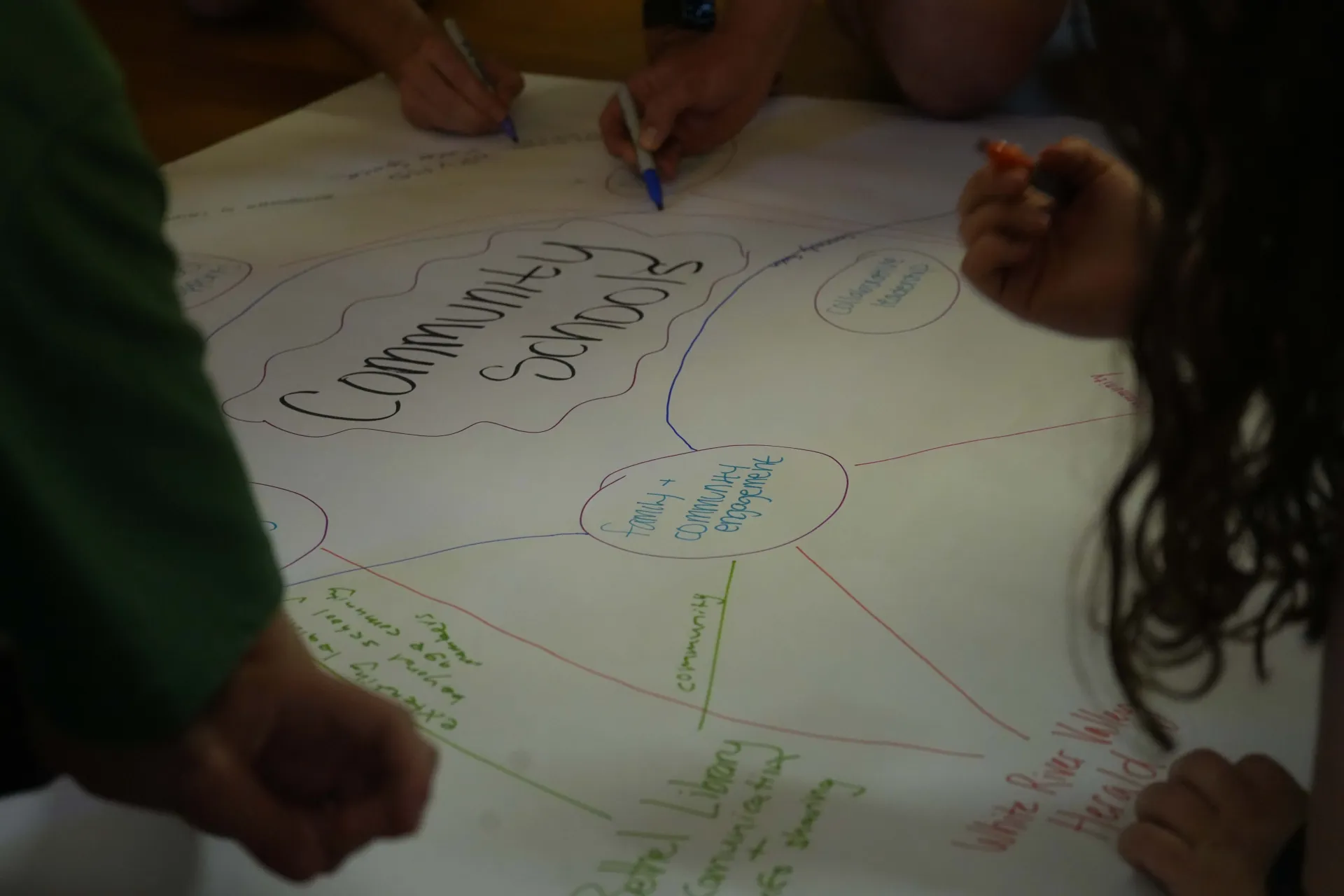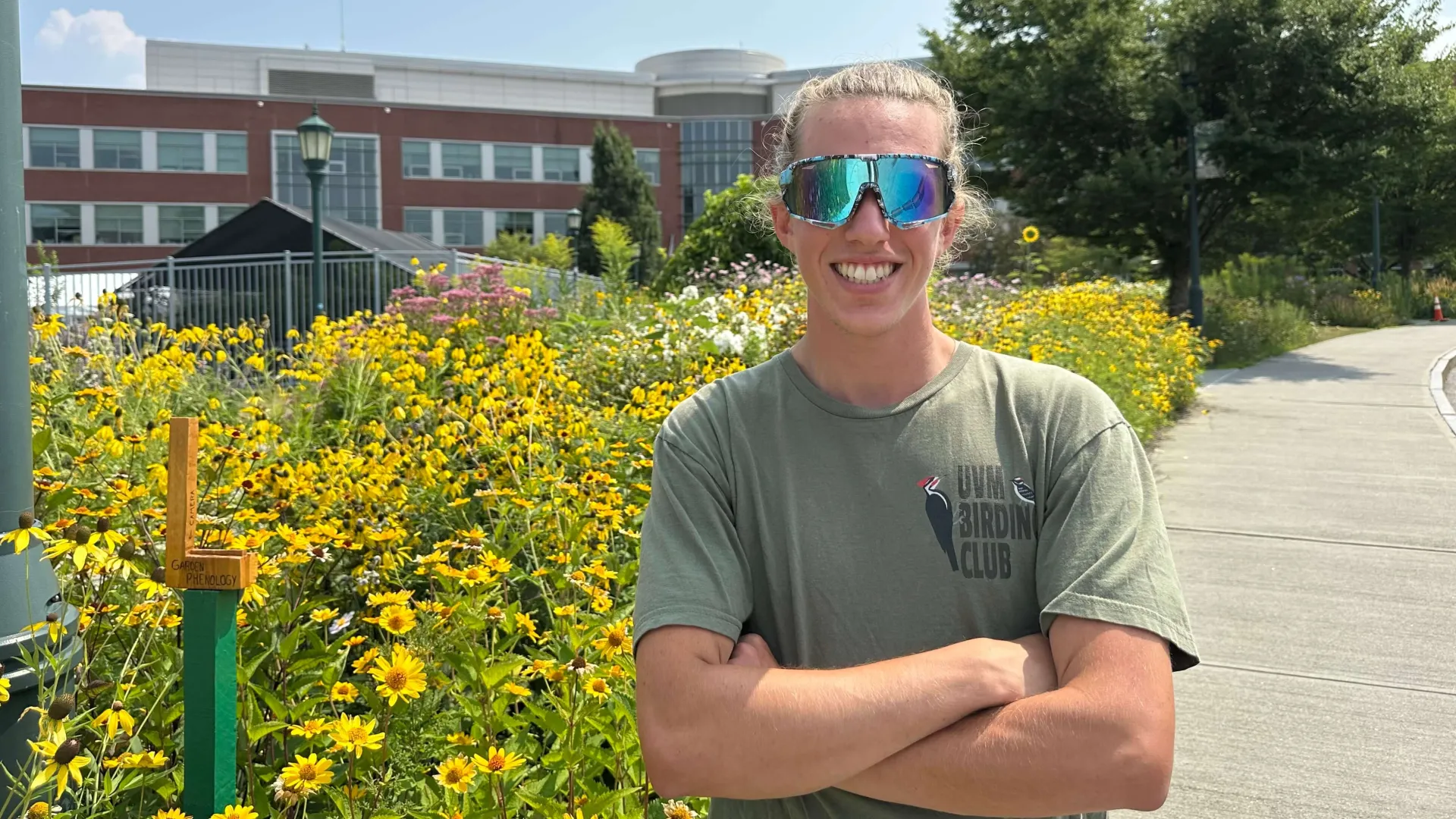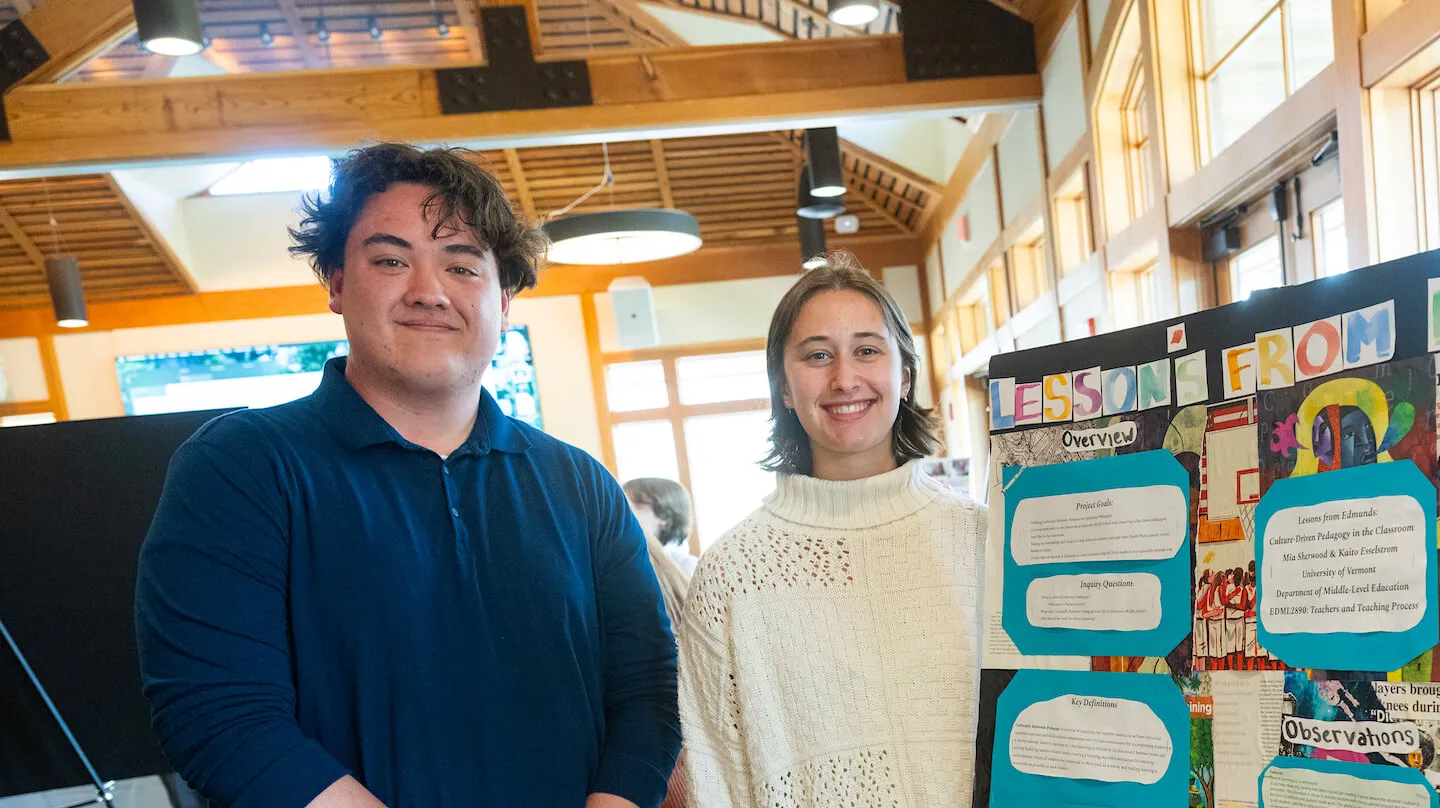In their first year, students are in the field weekly for Natural History and Human Ecology (NR 1010 and 1020)—an immersive experience that brings together classmates from every major in the school. Fast forward to senior year, and those same students reunite in the capstone course Environmental Problem Solving and Impact Assessment (NR 4060), where they apply four years of learning to real-world challenges.
These classes bookend the Rubenstein School Core Curriculum, a required set of courses that all students enrolled in the school take over four years. With engaging field labs and interdisciplinary instructors, the Core Curriculum establishes a shared foundation of learning, helps to build community in the school, and sets students up for post-graduate success.
Connecting students with local partners
NR 4060 is special because of its service-learning design. Students work in teams to tackle real-world, complex environmental problems. They are paired with a community partner and assigned to focus on a challenge that the partner is facing. As a result, students can apply their academic knowledge from the past four years to a tangible problem, and the participating partners see a direct, positive impact in their community or organization.
The community partners participating in NR 4060 represent many sectors including local and state government, non-profit organizations, private businesses, and educational organizations. The partners come with ideas they base on their own priorities, and they pitch those ideas to students. Once the students are assigned to their groups, they work with the partners to co-develop their projects.
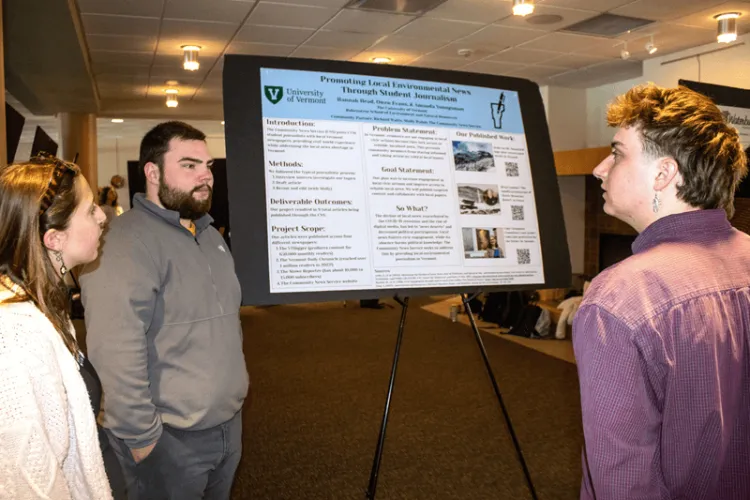
The projects range widely in topic. In the spring of 2025 one group of students was tasked with assessing flood resilience strategies in the town of Waterbury, while another group worked as journalists, reporting on a variety of scientific topics in partnership with the Center for Community News. In each instance, students work off campus, spending time in the communities they are focused on. They may find themselves working outside their comfort zone – raising questions at a contentious town meeting or braving the elements to remove invasive species in the field.
Award-winning instruction and partnership
With an average of 100 students and 15 community partners each semester, coordinating projects and meeting learning goals is complex. The course succeeds largely due to the passion and skilled instruction of Rubenstein School Lecturer and Research Associate Dr. Laura Edling. She has taught NR 4060 since 2020. With expertise in community-based natural resource management and stakeholder engagement, Edling is uniquely qualified to facilitate the many people and projects involved.
In the spring of 2025, the Community-Engaged Learning Office (CELO) at UVM celebrated the successful implementation of NR 4060 twice over with awards for Edling and a long-standing community partner. Edling received the Outstanding New Service-Learning Faculty Award for her preparation, creativity, and flexibility. Nominated by fellow faculty member Allan Strong and former graduate student Eric Urbaniak, Faculty and students describe Edling as “an expert at building mutually beneficial, collaborative projects between students and partners.”
Reviewers credited Edling for her skills at “encouraging difficult discussions to understand diversity in perspectives and experiences that are impacting teamwork.” At a ceremony in May, CELO Director Susan Munkres detailed Edling’s commitment to her work, demonstrated by her participation in the Faculty Fellows program in 2022 and her regular collaboration with the CELO team to build reflection assignments and incorporate transferable skills into student projects.
“Reviewers were so impressed with the scope and scale of the work in this class and your commitment to all aspects of community-engaged pedagogy,” said Munkres. “Laura, you go above and beyond, and we’re so glad to be able to give you this award.”
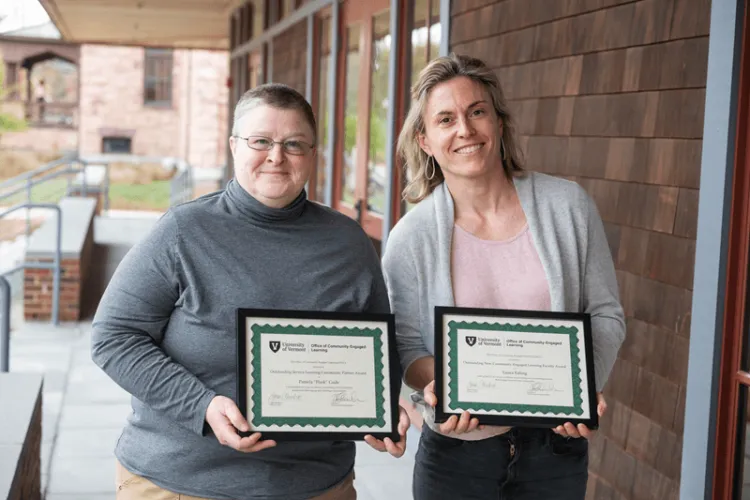
Pamela “Flask” Gude who serves on the Bolton Conservation Commission received a CELO award for her partnership with the NR 4060 course. CELO recognized Flask for her adaptability to the full range of student needs and abilities over her many years as a participating community partner.
“Being a community partner requires a lot of flexibility,” said Edling. “Flask is skilled at accommodating student preferences and offering invaluable experience each year. She is responsive to diverse student backgrounds and abilities, and she tailors projects to the group, all while ensuring the students are challenged and successful.”
Set up for post-graduate success
In the final week of classes NR 4060 students present their service-learning work at a public poster session. Attendees include community partners, faculty, staff, and fellow students. They have the chance to walk through dozens of final research posters and to talk directly with the students who conducted the work. Oftentimes student presenters include educational handouts or other materials they developed as part of their project to share along with their poster.
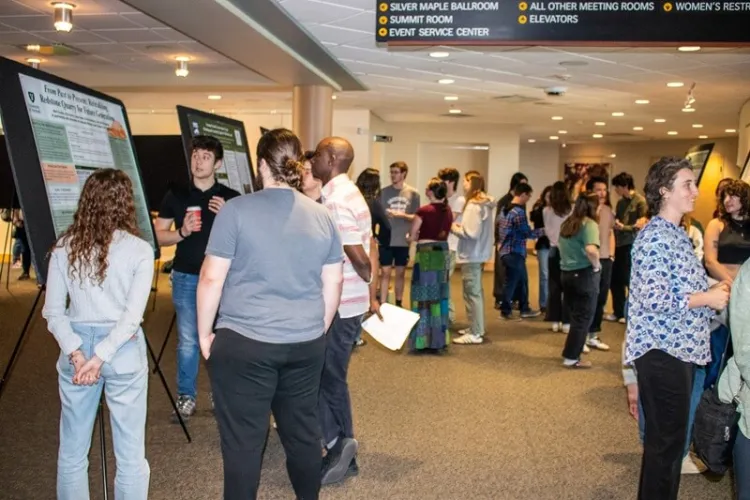
Completing NR 4060 is a momentous occasion, coinciding with the final stages of an undergraduate degree. Students graduate from the Rubenstein School with direct experience designing and managing projects and collaborating with diverse stakeholders. They leave with a portfolio-ready project to highlight on their resume, an understanding of the type of work they are capable of, and a strong network of supportive peers to rely on.
